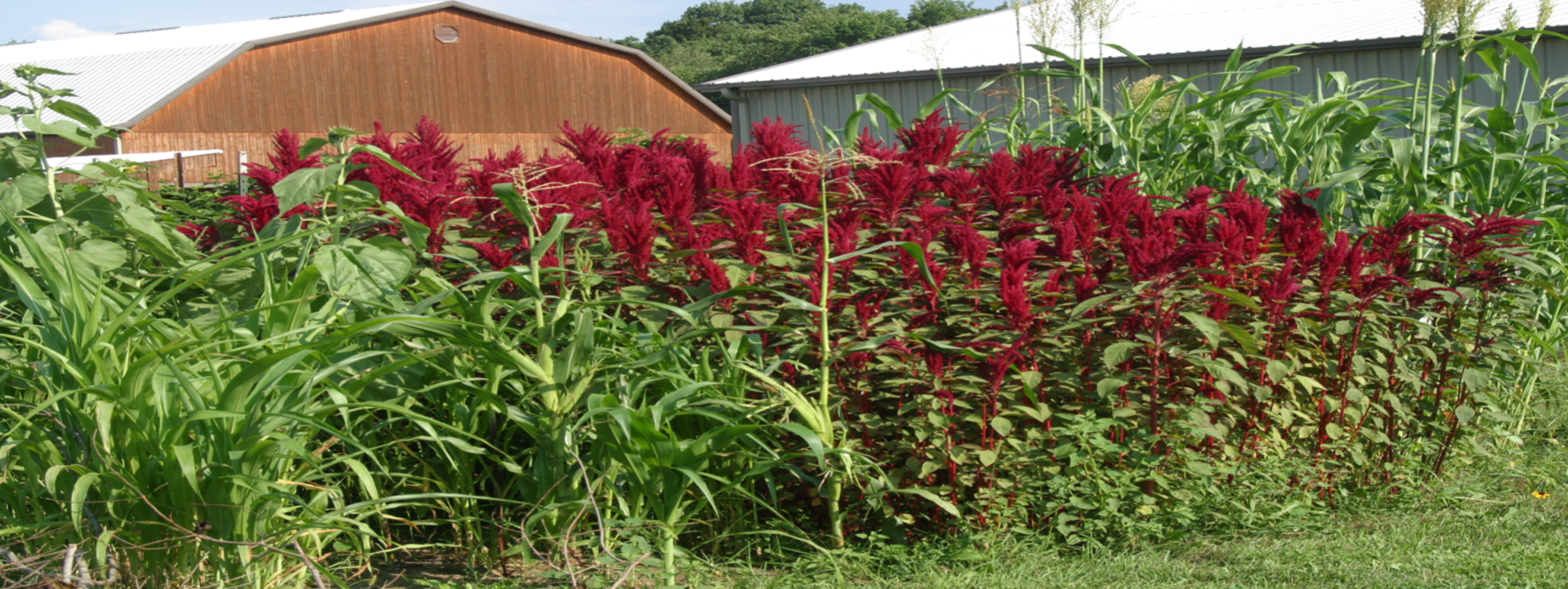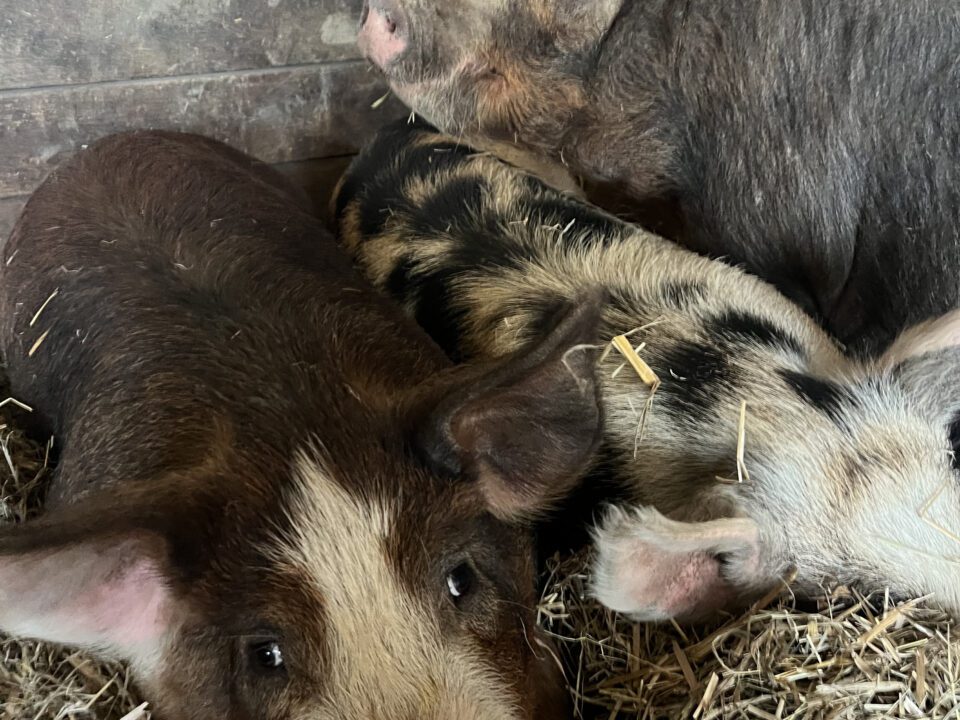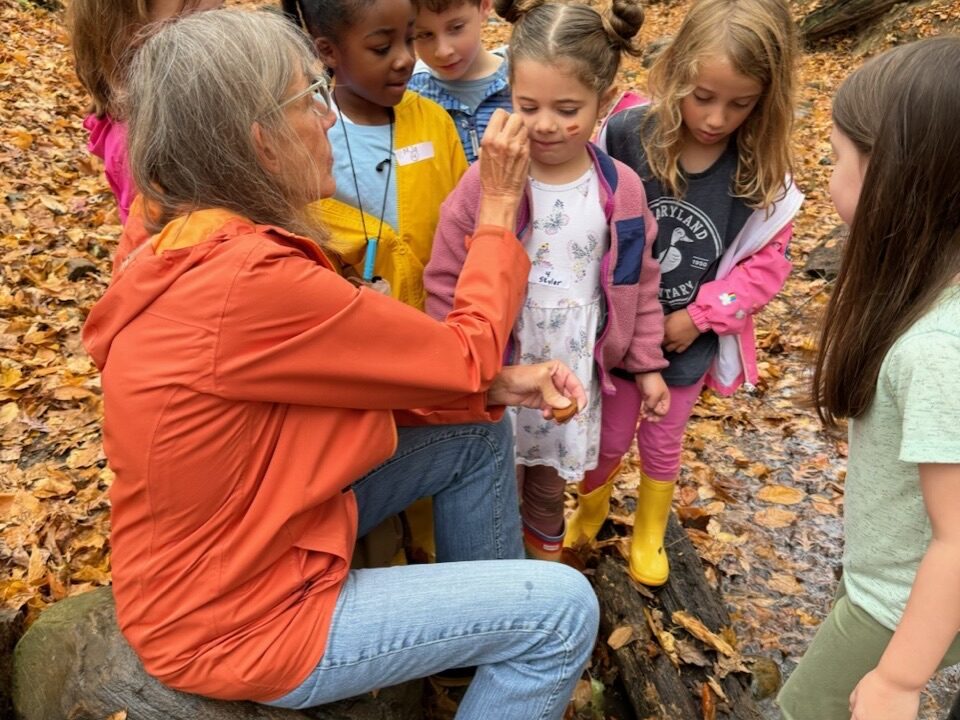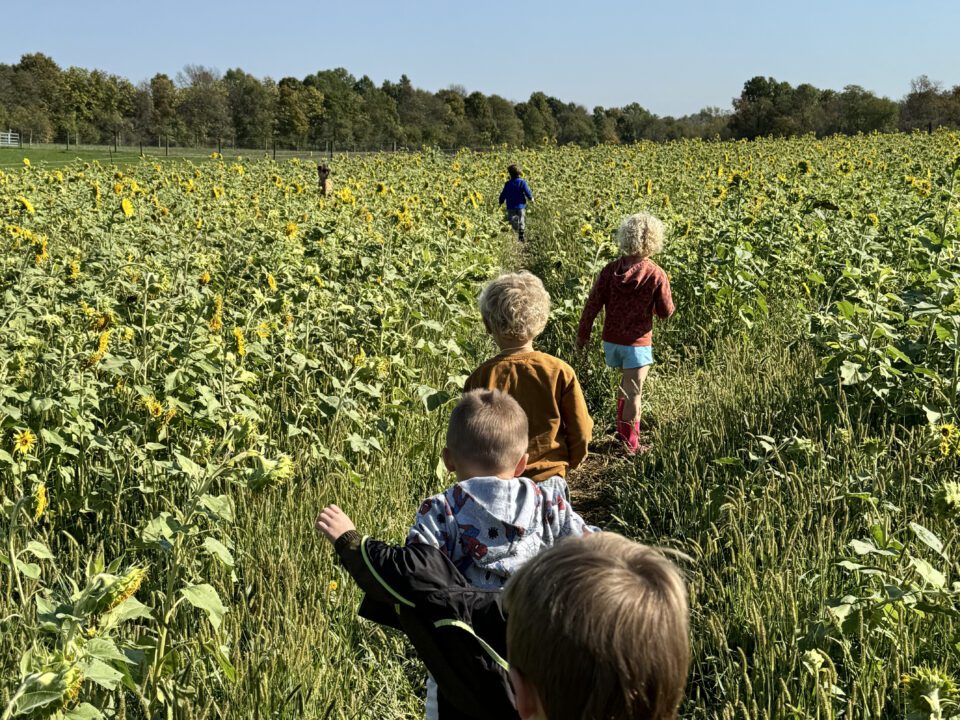
Is it Another Phantom Pregnancy for Rosie?
February 6, 2010Published in The Delaware Gazette: January 9, 2010
The staff returned refreshed after the holidays to Stratford Ecological Center on Liberty Road. For resident farmer, Jeff Dickinson, it was not quite the same story. He and his family continued with the twice daily animal chores during colder than normal temperatures. The old saying “There is no bad weather, only inadequate clothing” is close to the truth. However, when the wind blows through the open side of the barn, it is hard to dress warmly enough and still be able to move around and care for the animals.
The animals do not seem to mind the downturn in temperature. They managed just fine in the fields near the Sugar Shack until Christmas, wandering back to the barn at night. Since then, due to the snow cover, they have been restricted to their pens in the barn. If it is not too wet, they usually have access to the adjacent barn yard to enjoy a bit of grazing. We held off grazing them on the corn stalks, fallen cobs and kernels in the northern boundary field. It will provide a welcome treat when we eventually let them on.
Four doeling goats and two young ewes continue to be housed together next to the education building. They are too young to mate this year and therefore cannot mix with the older nanny goats and ewes, presently breeding with the buck and ram in the barn. Their water troughs don’t stay above freezing, so an additional chore is chipping away at the ice and topping up the troughs.
The ice chipping process continues in the orchard, where the hens will remain until we find time to clean out the hen house in the children’s garden, now the meat chickens have departed. The meat chickens did well, and to obtain a quality product we fed them organic, non‐genetically modified corn. Due to the amount of high priced feed consumed, our costs were considerably higher than anticipated and we will review any future plans for raising meat chickens. The number of laying hens has been reduced from fifty to thirty. They had passed their egg laying days and we accepted an offer from a couple living in the country to process them. They will freeze them and gradually use them as “soup” chickens. This is an old way of using mature birds.
With a recent purchase of two tons of “roasted” soybeans from Apple Creek, we are in good shape for animal feed. These beans are more palatable due to a heating process to roast them as they tumble in a cylinder. The beans enter at one end of the tumbler and are collected at the other end. The beans still need to be ground into meal before feeding. It appears the only animals who are feeling a pinch in the food department are the cats. In this cold weather the mice have buried themselves more deeply and the cats are vying for their processed cat food.
Our freezers space at Stratford will soon be filled to capacity with our own farm raised beef, goat, lamb and pork. This is the best time of the year to come out to buy meat as there is a good selection and despite pre‐orders, plenty for everyone. Our two 24‐month‐old steers, one known as Crooked Face, were delivered to the organic processors in early December. Last Sunday the final five of our spring‐born male goat kids went to a non‐organic processor, Hoffman’s in Cardington.
On Tuesday the two remaining spring lambs and the three late‐May piglets, notorious for their escapades, weighing between 225 and 245 lbs., were herded into the trailer for the drive to Dee Jays Organic Processing in Fredricktown. We thanked them for providing our food. However, we had no time to dwell on our separation as we strove to keep them moving in the right direction. Believe me, those once cute little piglets and lambs are big and strong! Thankfully, a few corn cobs and a bucket, enticed them into the straw strewn trailer. En route home, Farmer Jeff picked up a boar from Ed Snavely’s to mate with Roja and Rosie.
New life arrived on the eve of Thanksgiving in the form of an in‐calf Red Devon cow from Sylvia Zimmerman’s farm near Delaware. A Red Devon produces a calf to be raised for meat. The calf will suckle on its mother who will not be milked for human consumption, unlike our two dairy cows, Sugar and Molasses. They presently reside at Sylvia’s, where they will stay until we are certain they have bred. The new cow has a calf at foot. The calf could not be caught on the dark stormy night we loaded his mother. He jumped over a gate and ran through an electric fence and we had doubts about the wisdom of bringing him to Stratford. For a week both suffered from pangs of separation, only to be joyously reunited after we decided to try again. The calf is now behaving impeccably.
Not a lot is going on in the fields. We will move manure from the barn to the north pasture when the weather permits. The spelt is safe under a blanket of snow. We would like to move a few items into the machine shed as soon as we can make enough space. Mixed farming means more equipment and more storage concerns. Once under roof we will use the down time to carry out any repairs. The greenhouse is holding its own with a colorful and tasty display of greens for u‐pick.
Young people can take advantage of Story Time on the Farm on Tuesday, January 12 from 10 to11 am. It is held every second Tuesday of the month. Despite the cold, the journey down the long curving drive to the farm is as beautiful as ever. I hope you will rise from your armchair, pay us a visit and enjoy the warmth and information found in the education building.





